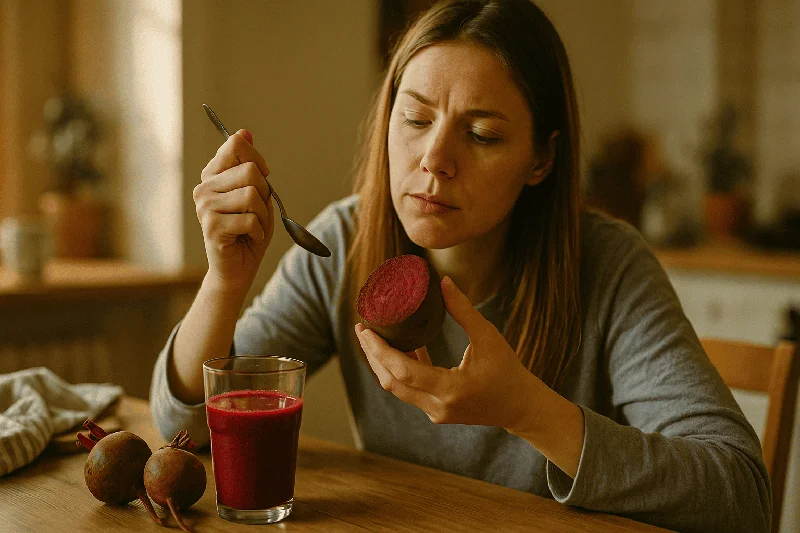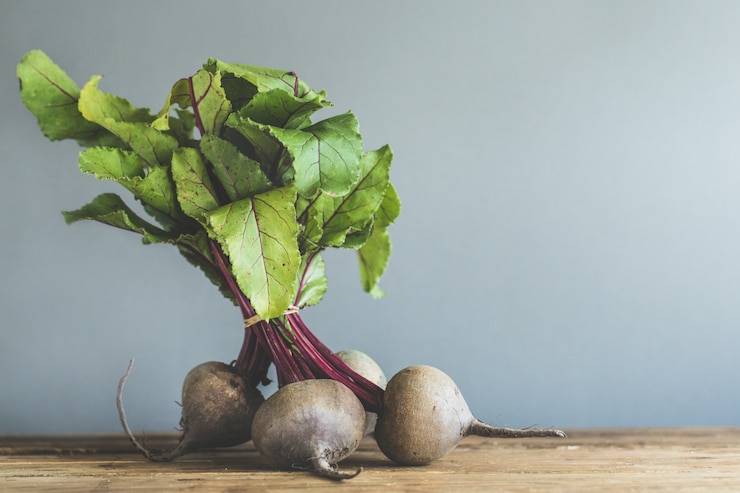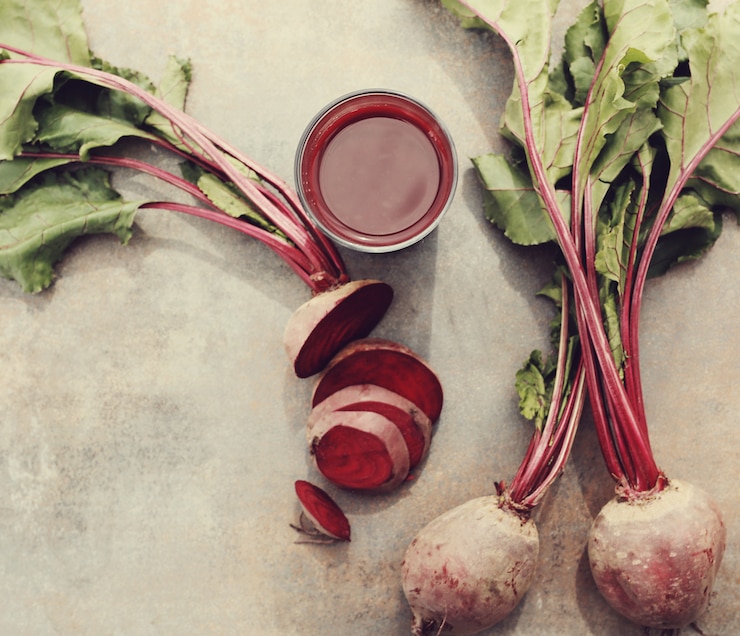Ask Ayurvedic doctor a question and get a consultation online on the problem of your concern in a free or paid mode. More than 2,000 experienced doctors work and wait for your questions on our site and help users to solve their health problems every day.
Is Beetroot Really Healthy?

Key Takeaways Shortly
- Beetroot is recognized in Ayurveda for its ability to balance doshas and enhance overall well-being.
- This root vegetable is rich in essential nutrients, including vitamins and minerals, making it a health powerhouse.
- Beetroot supports blood health by improving circulation, reducing blood pressure, and boosting cardiovascular health.
- Modern scientific studies are validating Ayurvedic claims about beetroot, highlighting its health benefits.
- There are numerous ways to incorporate beetroot into daily meals, such as through smoothies and salads, to enjoy its nutritional advantages.
Beetroot is a popular root vegetable, known for its vibrant color and earthy taste. But did you know it holds a special place in Ayurveda? This ancient system of medicine hails beetroot for its unique healing properties. Packed with nutrients, beetroot can be a powerful addition to your diet. In this article, we’ll explore why beetroot is considered healthy, especially through the lens of Ayurveda. We'll dive into its nutrient profile, its benefits for blood health, and how you can incorporate it into your daily routine. Get ready to discover the many health insights about this remarkable root.
Nutritional Breakdown of Beetroot
Beetroot is more than just a colorful addition to your plate; it's packed with nutrients that can benefit your health. It's rich in essential vitamins and minerals. For instance, beetroot is a good source of folate, which is vital for DNA synthesis and repair. Folate is especially important for pregnant women, as it helps in fetal development.
Beets also offer a decent amount of vitamin C, an antioxidant that supports the immune system. Minerals like potassium and manganese are found in abundance. Potassium helps maintain normal blood pressure levels, while manganese is essential for bone formation and metabolism.
Moreover, beetroots are loaded with dietary fiber, aiding in digestion and keeping you full longer. One unique nutrient found in beets is nitrates. These compounds have been shown to improve blood flow and lower blood pressure.
The natural pigments that give beets their deep red color, called betalains, have anti-inflammatory properties. According to Dr. Michael Greger, "Beetroot has been shown to improve blood flow, lower blood pressure, and help with exercise performance."
Incorporating beetroot into your diet can provide these benefits and more. Whether you enjoy it in a salad, juice, or roasted, beetroot is a nutritious choice.
Beetroot's Impact on Blood Health
Beetroot, a vibrant root vegetable, plays a remarkable role when it comes to blood health. Rich in essential nutrients, beetroot is packed with nitrates. These compounds are known to improve blood flow. They convert into nitric oxide in the body, which helps to relax and dilate blood vessels. This can lead to lower blood pressure and enhanced oxygen delivery to tissues.
In Ayurveda, the ancient system of medicine, beetroot is highly regarded for its blood-purifying properties. It is believed to cleanse the blood and promote healthier circulation. This aligns with modern studies that suggest beetroot can contribute to healthier blood pressure levels.
Consider the words of Dr. Michael Greger, a well-known physician and author:
"Beets may improve athletic performance by improving oxygen and blood flow."
- Dr. Michael Greger
A practical example of beetroot's benefits can be seen in athletes. Many consume beetroot juice before competitions for a natural performance boost. This is due to the increased oxygen efficiency that nitrates provide.
The nutrients in beetroot, like folate and iron, also play a role in maintaining healthy blood. Folate is vital for red blood cell formation, while iron helps in carrying oxygen in the blood. Thus, incorporating beetroot into your diet can be a simple way to support overall blood health.

Modern Science Meets Ayurveda
Modern science and Ayurveda, though different in origins, have found common ground in recent years, especially regarding beetroot. This vegetable, known for its deep red color, is gaining attention for its health benefits.
-
Scientific Validation: Scientists have been studying beetroot for its rich nutrient profile. It contains vitamins like C and B6, minerals such as iron and magnesium, and antioxidants. These nutrients support overall health and are particularly beneficial for the heart.
-
Ayurvedic Perspective: Ayurveda views beetroot as a food that can balance the body's doshas—Vata, Pitta, and Kapha. It's believed to improve digestion and promote healthy blood circulation. This aligns with scientific findings that beetroot can enhance blood flow due to its nitrate content.
-
Blood Pressure Benefits: One of the most researched benefits is its effect on blood pressure. Modern studies show that the nitrates in beetroot can help lower blood pressure. This aligns with Ayurvedic practices that use beetroot to support heart health.
-
Detoxification Properties: Both Ayurveda and modern science agree on the detoxifying properties of beetroot. It is thought to cleanse the liver and help eliminate toxins from the body. This is due to its high fiber content and presence of antioxidants.
-
Exercise Performance: Recent research highlights beetroot's ability to enhance physical performance. Nitrates improve oxygen delivery to muscles, which can boost endurance. Ayurvedic practitioners also recommend beetroot for its energy-enhancing properties.
While they come from different backgrounds, modern science and Ayurveda both appreciate beetroot's health benefits. As more research unfolds, the synergy between these two fields becomes even more evident.

Incorporating Beetroot into Your Diet
Beetroot has quietly become a star in the world of health, often celebrated in Ayurveda for its numerous benefits. It's packed with essential nutrients that not only support blood health but also fit seamlessly into a variety of dishes. So, how can you make beetroot a staple in your daily meals?
Firstly, think about adding beetroot to your salads. Its sweet, earthy flavor pairs well with greens and a splash of balsamic dressing. You can grate it raw or roast it to bring out a deeper taste. If you're a fan of smoothies, try blending beetroot with some apples or berries. This not only boosts nutritional value but also adds a vibrant color.
For those who love trying new recipes, why not bake with beetroot? Beetroot brownies or muffins can be a surprising treat. They offer a natural sweetness and a moist texture that many love. You can even experiment with beetroot in soups or as a side dish, perhaps roasted with a sprinkle of herbs.
Of course, beetroot juice remains a classic choice. It's a quick way to enjoy its benefits, especially if you're on the go. Just remember to start with small amounts if you're new to it, as its intense flavor can be quite bold.
Now's the time to share your own beetroot experiences or recipes. Engage with others by leaving a comment or sharing this article. Explore more about Ayurveda and discover how this wonderful root can enhance your health journey. Let's celebrate beetroot's role in our well-being and make it a delightful part of our diets.
FAQ For Beetroot
What are the main health benefits of beetroot according to Ayurveda?
In Ayurveda, beetroot is valued for its ability to balance the doshas, particularly Pitta and Vata. It is believed to enhance overall well-being by supporting blood health, improving digestion, and providing detoxification benefits.
What nutrients make beetroot a powerhouse of health?
Beetroot is rich in essential nutrients such as vitamin C, folate, potassium, iron, and dietary fiber. It also contains antioxidants like betalains, which have anti-inflammatory and detoxifying properties.
How does beetroot support blood health?
Beetroot is known to improve blood health by enhancing circulation, reducing blood pressure, and supporting cardiovascular health. Its high nitrate content helps dilate blood vessels, which can lead to better oxygen flow and lower blood pressure.
What does modern science say about the health benefits of beetroot?
Modern scientific studies support many of the Ayurvedic claims, showing that beetroot can improve athletic performance, lower blood pressure, and provide antioxidant benefits. These studies validate the root's role in promoting cardiovascular and overall health.
How can I incorporate beetroot into my diet?
Beetroot can be added to your diet in various forms, such as raw in salads, roasted as a side dish, blended in smoothies, or juiced. Its natural sweetness also makes it a great addition to baked goods and soups.
Are there any side effects or precautions to consider when consuming beetroot?
While beetroot is generally safe for most people, consuming it in large quantities may cause beeturia, a harmless condition where urine turns pink or red. Those with kidney stones or on a low-oxalate diet should consume beetroot in moderation due to its oxalate content.
Can beetroot be used as a natural remedy for high blood pressure?
Yes, due to its high nitrate content, beetroot can act as a natural remedy for high blood pressure. Nitrates help relax and dilate blood vessels, leading to improved blood flow and reduced pressure. However, it should complement, not replace, prescribed treatments.

